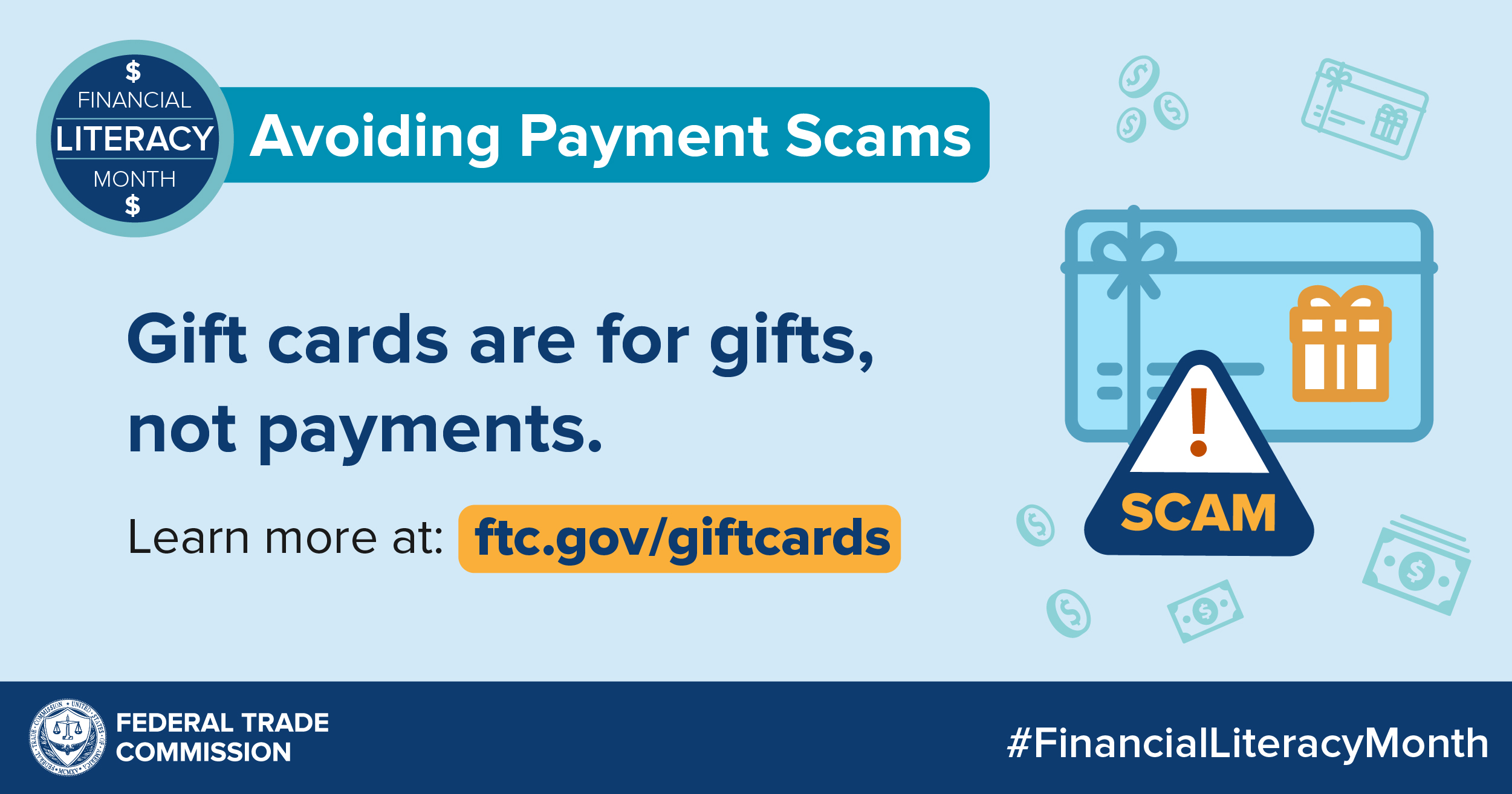 Over the past year, the Coronavirus created financial problems for many people. Maybe you’re one of them. As you work to regain your financial footing, scammers will continue to try to steer you off course. Here are a few ways to spot, stop, and report payment scams.
Over the past year, the Coronavirus created financial problems for many people. Maybe you’re one of them. As you work to regain your financial footing, scammers will continue to try to steer you off course. Here are a few ways to spot, stop, and report payment scams.
- Asked to pay with gift cards? Don’t do it. Gift cards are the most common form of payment people use when losing money to scammers. Scammers often pose as legitimate companies, the government, or someone you know. They tell you to pay with a gift card — but only scammers do that. If you share a photo of the back of a gift card or read the numbers to anyone, your money will be gone. If anyone asks for payment by gift card, it’s a scam.
- Asked to pay with digital money or cryptocurrency? Think twice. Payments by cryptocurrency are hard to trace and typically can’t be reversed. Once you pay with cryptocurrency, you likely can only get your money back if the person you paid sends it back. If that person is a scammer, you’ll be out of luck.
- Asked to pay by money transfer? Don’t. Scammers often tell people to send money through money transfer companies like Western Union and MoneyGram, knowing it’s a lot like sending cash. Once you send it, it’s gone. Typically, there’s no way to reverse the transaction or trace the money. Don’t use money transfer payments with people and companies you don’t know.
Learn more about the financial impact of the Coronavirus. If you or someone you know lost money to a scammer, check out some quick steps to try and recover it. And if you’ve spotted a scam, tell the FTC at ReportFraud.ftc.gov.
